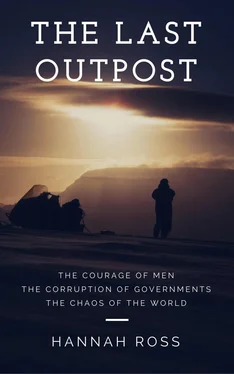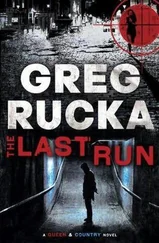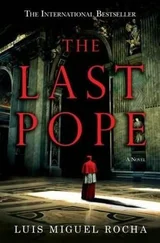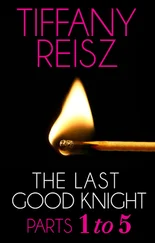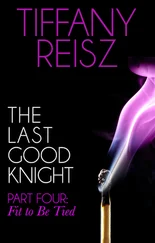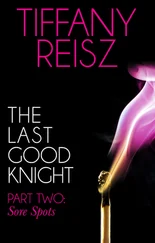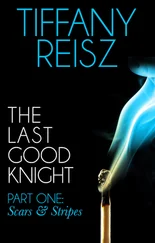The river ran across the farther side of the valley, one that Scott had not visited until now, and swerved outside in the direction of the bay. It was rather narrow, but rather deep, and its stream was quick and clear. The banks were rich with grass and moss, and closest of all to the water was dark, slick soil with a high content of clay. Scott rubbed it appreciatively between his fingers, and Ri Omrek said:
“This good for making pots. When burn, grows hard.”
An even wider, and probably deeper bed of clay was on the other side of the river, and to illustrate Ri Omrek’s words, a couple of women were sitting there, collecting the pliable clay into baskets to carry home and make pots, cups and bowls.
“Anders is gone?” Ki Tahan asked Scott as they were choosing a place to fish.
“Yes, Anders is gone home,” Scott said.
“Is sad to lose friend,” Ri Omrek said, “but I hope he happy.”
“Oh, he is. He says he is doing very well, and visiting with his children and grandchildren.”
Ki Tahan and her brother exchanged confused glances. “How can you know that, if he is gone?” Ki Tahan asked. It then struck Scott that they probably know nothing of ways to communicate with the outside world — the Anai had never needed that for themselves, as they had no contacts beyond their valley.
“There are ways to carry messages from afar,” Scott said, “very quick messages.” He decided this might not be the right moment to attempt to explain how email works. Not only was it probably against government regulations, but he doubted he could sum it up in a way that wouldn’t take hours of talking.
Ki Tahan’s expression brightened slightly. “It is good if we can hear about Anders from you,” she said. “We miss him.” Then she sharply reprimanded her son, who was about to sneak away among the grasses. She called him to her, stripped his clothes off and, despite his loud protests, washed him vigorously in the river, using a tuft of grass to scrub him off. She then took clean garments out of one of her baskets, dressed the child, and piled up his muddy tunic and breeches to wash.
While the freshly washed garments were drying upon a nearby rock, Ri Omrek took off his moccasins, rolled up his breeches, and stood poised, spear in hand, with Scott as his eager audience. Try as he might, Scott could not see any fish in the foamy, rippling water, but Ri Omrek had a trained eye, and as his spear darted below, lightning-fast, it emerged with a flailing fish impaled on it. Scott watched admiringly as the fish was transferred into an empty basket.
Ki Tahan came closer. “Your turn,” she said, offering Scott her spear. He couldn’t very well back off, not without losing his dignity. Hesitantly, he took off his knee-high terrain boots, rolled up the pants of his orange suit, took the spear, and got in the water. It was icy, far colder than he would have guessed judging from the temperature of the air, but this was not to be wondered at, as the river originated in melted glaciers. Goosebumps erupted at once all over the exposed areas of his skin.
He raised the spear in his best imitation of Ri Omrek and peered into the water. Something dark moved underneath the surface, and he took his chance and struck. The spear came out empty, once and twice and three times. With a good-natured laugh, Ki Tahan took off her footwear and rolled up her breeches as well, got into the river, took the spear from him and looked down. In a movement too quick to discern, she impaled two fish at once.
“Good fishing today,” she said.
Ri Omrek was squinting ahead, to the other side of the river, where women were working upon the dark clay. A slender girl with a long light-brown braid came there, passing gracefully down the natural path of slippery stepping-stones across the stream, and laid down her basket. Ri Omrek put down his fishing spear and stepped across to talk to the girl. Scott could not hear or understand the words, of course, but there was no need to — wooing was wooing, much the same no matter to which race or nation one belonged, and the expression of the young man’s face spoke volumes. Ki Tahan noticed it too. She was smiling wistfully.
“Soon, Ri Omrek settle down, build his own house,” she told Scott. “I am glad. It is time.”
Scott made no more attempts to fish. He got out and allowed his feet to dry before pulling his socks and boots back on. It was strange to feel lush green grass between his toes and know that he is deep within the frozen realm of Antarctica.
Once he had donned his footwear again, he dedicated himself to the amusement of the little boy, with whom they were soon very good friends. They tossed flat polished stones into the river, turned rocks over to look for bugs, and found a whole depository of freshwater clams close to the bank. Egan gathered a handful and ran to show them to his mother with exclamations of delight, and Ki Tahan approached and gave an approving nod.
“These are good,” she said, while her son was collecting the clams into a basket. “Make nice stew. Taste sweet. Daygan, my man — Egan’s father — he liked them very much.”
A sad, slightly detached expression came over her face as she looked into the distance. Scott held his breath, and it felt painful in his chest. “What happened to him?” he asked before he could stop to consider the question.
“Year before last, Daygan and other men go after… sarmak . How Anders teach me? Ah, kind of whale. Darkness come soon, we need meat for winter. There is storm. Men wait on bay, in small cave. Rocks fall. Men run, but two are injured. One gets up, but Daygan, he hurt. Lots of blood, cannot walk. Omrek and other men, they carry Daygan home. He very hurt. Arms, legs, shoulder…” Ki Tahan touched these parts of her body for emphasis, “but most badly, his head. He not… not see. Not know, he…”
“Was unconscious,” Scott suggested.
“Yes. At that time, Anders here, in village. He see Daygan, but can do nothing. Daygan in pain, and we know he… going to pass to land of darkness,” her voice caught with pain. “Anders take something out of bag — medicine to give Daygan, not feel pain. Daygan go in peace, that same day,” she finished. “I grateful,” she added in a soft, quiet voice.
While she was speaking, Scott didn’t realize his fists were clenched. Once she had finished, he deliberately pried his fingers open and wiped his sweaty hands on the grass. He had no way of knowing if there might have been a chance to save Ki Tahan’s husband with proper medical care, but he knew beyond a doubt what would have been done in such a case for any station worker or visitor. McMurdo station would have been alerted at once, and a helicopter sent to convey the injured man to hospital. They never even attempted to do anything. Lindholm knew this was beyond his authority. It was against the regulations. The secret might have leaked, and keeping the secret was more important than saving the life of a man. So Lindholm just gave him some painkillers to ease his passing. For an instant, Scott’s eyes filled with hot moisture, and he blinked it away. Ki Tahan didn’t seem to notice, lost in her own memories.
“We have enough food,” she said, indicating the baskets of fish and clams, “and Omrek busy,” she added with a touch of humor, looking at her brother, who was still engaged in earnest conversation with the girl on the other side of the river. “Can go home, yes? Cook stew.” She collected the clothes she had washed, and Scott helped her gather the baskets. Ki Tahan called to her son, who picked up his little spear and his flat river rocks, and the three of them started back.
The clams and fish were ready soon, in the heartiest and most delicious chowder Scott had ever tasted. Eventually, Ki Tahan filled a bowl with the remainders of the meal, set the empty pot and the bowl aside, and said:
Читать дальше
